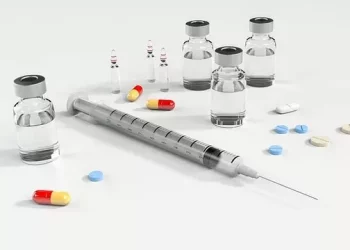Millions worldwide unknowingly grapple with a deadly trio: diabetes, high blood pressure, and kidney disease. Often, individuals only discover the connection between these conditions once the damage is irreversible.
Healthcare professionals emphasize the importance of understanding the link between these diseases, as early intervention and prevention are critical, especially for individuals at risk or those caring for affected family members.
Diabetes has emerged as a growing public health crisis. In 2021, the Ministry of Health reported that over 821,500 adults were diagnosed with the condition, affecting nearly 4% of the adult population. However, a significant number remain undiagnosed, with Type 2 diabetes being the most prevalent form, typically developing in adulthood. The disease arises when the body struggles to produce or effectively use insulin, resulting in high blood sugar levels.
Dr. John Ngigi, head of the Nephrology and Kidney Transplant Unit at Nairobi West Hospital and chairperson of the Renal Association of Kenya, explains that “Diabetes can damage small blood vessels, which contributes to high blood pressure and can lead to kidney disease.”
This dangerous cycle is further elucidated by Mohamed Hany Hafez of the African Association of Nephrology (AFRAN). “Diabetes weakens the kidneys’ ability to filter waste, stiffens blood vessels, and raises blood pressure. In turn, hypertension accelerates kidney disease, significantly increasing the risk of heart complications.”
What makes these conditions especially alarming is their silent progression. “Most people with Type 2 diabetes remain undiagnosed or start treatment only after five years of the disease’s onset,” Hafez notes. High blood pressure is often called a “silent killer,” and kidney disease typically remains symptom-free until its advanced stages.
In Kenya, the Kenya Renal Association (KRA) estimates that over 4 million people suffer from kidney disease, with projections showing this number will rise to 4.8 million by 2030. Diabetic nephropathy (kidney disease caused by diabetes) and hypertensive renal disease are leading contributors to kidney failure.
Preventing kidney disease and managing diabetes requires significant lifestyle changes. The World Health Organization (WHO) recommends staying physically active, monitoring blood sugar and blood pressure, eating a balanced diet, avoiding smoking, and limiting the use of over-the-counter medications that can harm kidney function.
Diet plays a vital role in managing diabetes and hypertension. The American Diabetes Association (ADA) advises those with diabetes to focus on whole grains, vegetables, lean proteins, and healthy fats, while minimizing processed foods, sugary drinks, and high-sodium meals. Carbohydrates should come from high-fiber sources such as legumes, whole grains, and non-starchy vegetables. Healthy fats, like those in nuts, seeds, and fish, should replace unhealthy fats found in processed meats and fried foods. Lean proteins, such as fish, poultry, and plant-based alternatives, help maintain overall health without straining the kidneys.
Physical activity is also essential. Engaging in at least 150 minutes of moderate exercise per week can improve insulin sensitivity, lower blood pressure, and support kidney function. Walking, cycling, swimming, and strength training are all beneficial for managing diabetes and hypertension.
Additionally, managing stress is crucial. Chronic stress can elevate blood sugar levels and increase the risk of hypertension, ultimately affecting kidney health. Practices such as meditation, yoga, deep breathing exercises, and engaging in enjoyable activities can help reduce stress and promote overall well-being.
Esther Nyota’s experience underscores the importance of effective communication among healthcare providers. Diagnosed with diabetes, she later developed end-stage kidney disease and had to undergo a kidney transplant. She recalls how one doctor’s treatment plan for one condition exacerbated another, forcing her to change doctors.
Dr. Ahmed Sokwala, a consultant nephrologist at Aga Khan University Hospital Nairobi, confirms that diabetes and hypertension are the leading causes of kidney disease. “As more patients are diagnosed with diabetes and high blood pressure, we are seeing an increase in kidney disease,” he notes. Other risk factors include heart disease, smoking, obesity, and aging.
“Research indicates that after age 40, kidney function declines by approximately 1% each year,” adds Prof. Sokwala.
Understanding the intertwined nature of diabetes, hypertension, and kidney disease is essential in tackling this growing public health challenge.
Related topics:
Helping Families Navigate a Type 1 Diabetes Diagnosis in Children
Rare Sugars Show Potential to Suppress Appetite and Aid in Metabolic Disease Treatment in Mice
My Struggle with Diabetic Macular Edema: A Journey of Fear, Treatment, and Hope























